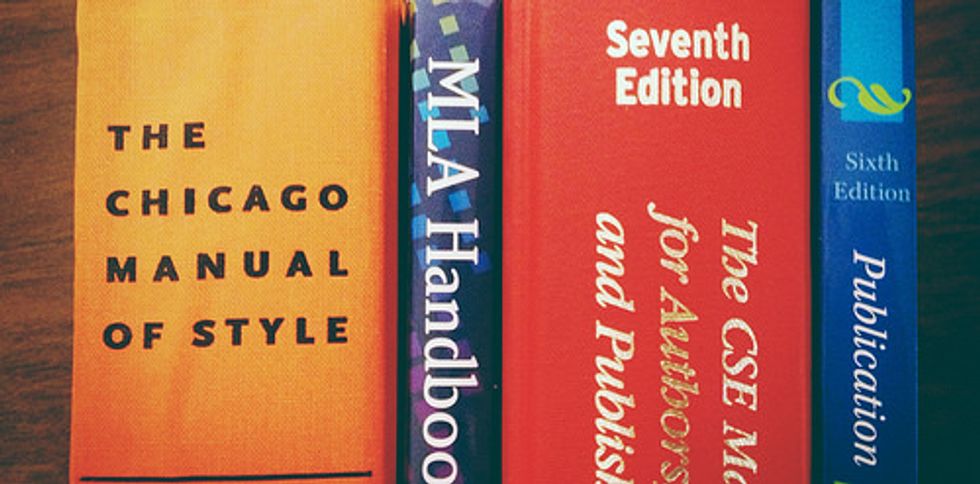With midterms underway, you want to be on your A-game with writing your papers and essays (even if it is at the last minute). As a writing advisor for over a year and a half, I've seen just about all of it: from students starting their essays the night before they're due to the polished final draft that their professors are sure to swoon over. Writing in college takes many forms; but no matter if you're a first-quarter freshman or senior English major, it is something that we can all work on. Writing isn't just about the finished product — it is a process that even the most skilled writers are continually refining and learning about.
As a writing advisor, here are some of my quick and dirty tips to help ace your essays this quarter:
1. Go to a writing center
There are so many resources on campus, but writing centers are definitely one of the hidden gems. Getting peer-to-peer feedback is not only a great way to get another pair of eyes on your paper, but advisors can also give you extra support in ways that a professor can't. Not to mention, writing centers are a great place to get feedback in a less intimidating and more stress-free environment and meet new people!
2. Topic sentences and concluding sentences
I had to include this one because it is probably one of the most common things that students forget. Make sure your reader know where you're going in each paragraph, and that it has a TRANSITION. I'm not here to be the English police, but I know that professors are always looking for good organization and clarity. The same thing goes for the last sentence in a paragraph: make sure it includes thoughtful analysis or relates back to the rest of the paper.
3. Brainstorming and outlining
Before you even begin writing, make sure you've given adequate time to brainstorming. There are many ways to do this - from flow charts to sticky notes to word associations on a scrap piece of paper. No matter what your brainstorming or outlining technique is, spending at least a little time getting your ideas down before writing will not only make the writing process smoother but save you lots of time (potentially hours) thinking about what to write.
4. Grammarly, Hemingway, and other (completely free) proofreading software.
Now, this is something that not all professors will tell you, but as a student or professional, these handy tools can be a huge help in catching minor, pesky grammar mistakes. Beware that these should only be used for small grammar mistakes and they do no replace actual editing or major writing revision, but they are a great resource for students who are on the go.
5. Follow the (Purdue) owl!
Heard about the resource Purdue OWL? For all students who ask the question "how do I cite this?" it is my go-to source. Of course, there are some citations that are nearly impossible to find online, but for most citations, you'll find that the OWL can be your go-to resource for just about EVERY citation.
6. Don't procrastinate
Easier said than done - trust me, I know. But if you have the chance to get started earlier, it will make all the difference for your writing.
7. Write what you're passionate about
We don't all have the luxury to choose if get to write a lot of essays this quarter but if you do get to choose the topic, choose something that you want to learn more about. The more passionate you are about a subject, the easier all that research will be and you will be able to find your voice and your arguments more easily in your writing as well. Writing shouldn't just be a chore - it should be a way to express your thoughts and learn more about yourself and the world around you. That is why whenever students ask me what they should write about, I always ask, "what are you always curious to learn more about?" or "what is the thing that you want to discover?"


























